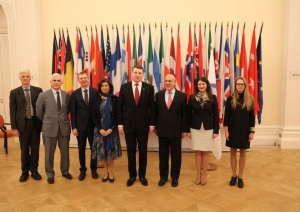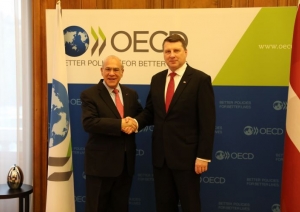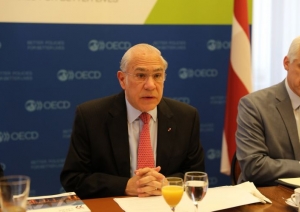During the meeting, the President of Latvia emphasised that the analysis and recommendations provided by the OECD on taxes, education, health, productivity, reducing inequality, and other areas constituted significant support for the implementation of reforms in Latvia. The OECD contribution to the creation of the financing model for healthcare and the optimal network for general education institutions should be highlighted in particular.
“During the accession negotiations with the OECD, Latvia already undertook several improvements in the management of state-owned enterprises, corruption combating, and transparency and risk management of the financial sector. I am pleased that Latvia has now implemented all the improvements that were agreed upon during the accession negotiations,” noted Raimonds Vējonis.
When discussing actions and plans Latvia has in the area of risk mitigation in the banking sector, the President of Latvia noted that the alignment of the Latvian financial sector was in the interests of both Latvia and its partners. The Latvian authorities are acting swiftly and decisively to ensure the transparency of banks and to prevent money laundering risks. The decisions taken by Latvia during the OECD negotiations helped Latvia to significantly reduce the volume of non-resident deposits in a short time, as well as improve the supervision of the financial sector, thus accelerating the progress regarding well-arranged banking sector.
The OECD is a globally recognised centre of expertise that enables representatives of Member States to address their issues in some sectors efficiently. The OECD also was known as the ‘best practice club’, brings together 34 Member States, accounting for 80% of the global economy in total.








